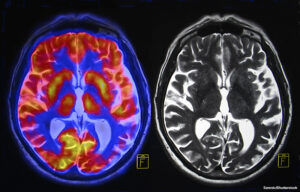
#NoCoronaSummerSlide
It’s easy to feel overwhelmed by all of the negative news about COVID-19 lately. That’s why it’s especially important to learn about amazing people who view the coronavirus crisis as an opportunity to make their communities better places. Chrishawndra Matthews is one of these special people. She has taken it upon herself to combat the “summer slide”–the term educators use for the fact that students often lose some of their academic skills over the summer. Experts predict that the summer slide could be much worse than usual this year, because most schools have been closed since early spring due to the coronavirus pandemic crisis. Kids with unreliable internet access may be more severely affected this year because they struggled to participate in distance learning activities during the final few months of the last school year . It is also true that not all kids have equal access to books.
So Ms. Matthews, , decided to do something about this problem. Matthews is the founder of Literacy in the HOOD, which has given away more than 60,000 books to low-income kids in the Cleveland, Ohio area since 2017. In response to the virus and quarantine, she is promoting the social media hashtag #NoCoronaSummerSlide. Matthews wished to encourage parents and children to read together for 15 to 20 minutes daily. Wherever free lunches are handed out to kids, Matthews shows up and distributes free books as well. Since mid-March, she has already given out around 1,500 free books to children.
What Do You Think? Ms. Matthews saw a problem caused by the coronavirus crisis and came up with a plan to fix it. What are some problems you’ve noticed in your community because of COVID-19 and the subsequent quarantine? What possible solutions could you come up with to address these problems?
New Developments in Fighting Brain Diseases
Degenerative brain diseases such as Alzheimer’s and ALS (Lou Gehrig’s disease) have long puzzled scientists. Part of what makes them so frightening is that there is no known cause or cure. In order to figure out how they work–and thus, how to cure them–doctors have considered everything from genetics, to environment, to a patient’s diet. Now, another aspect is at play: physics. Scientists think that some answers may lie in the phase transition process of neuron cells.

So what does that mean? Phase transition is a process by which cells reorganize, transition, or move from one phase to another. For most of us, this goes on all the time, without us even being aware of it. But in people with degenerative brain diseases a mutation keeps this movement from happening. Instead of moving around freely and transitioning from one job to another, the neuron cells of an Alzheimer’s or ALS patient stick to one another. This forms a sticky plaque on the brain, which inhibits normal brain functioning.
In response to the research, scientists and biotech companies are hard at work trying to create therapies that will regulate this phase transition process. Some experimental drugs and procedures have already been successful at separating these sticky neuron cells so far, though only in the lab. Scientists hope that these therapies will become publicly available within the next few years.
Dig Deeper What is the difference between Alzheimer’s, ALS, and dementia? Use Internet resources to help you write a definition for each.
U.S. vs. WHO?
The World Health Organization (WHO) is the public health branch of the United Nations. Its goal is to promote global health and well-being. Established in 1948, the WHO contains members from 194 nations. It has played a critical role in helping to eliminate worldwide diseases such as smallpox and polio. The WHO provides valuable information and annual statistics on global health. Last week, President Trump made the decision to remove the United States from the WHO. This decision was a result of the Trump administration’s disagreement with how the agency handled the coronavirus crisis.
But the United States can’t just leave this part of the UN immediately. For example, the United States must first pay all its unpaid membership dues–which amounts to about $198 million. It must also provide the UN with a one-year notice. Some members of Congress question whether the president is legally allowed to pull the U.S. out in the first place. Many American scientists and doctors–including the American Medical Association–worry that the U.S will no longer have access to critical medical skills and information. This is especially critical now, when the world is trying to stop a global pandemic. Other countries will also be negatively impacted, because the U.S. pulling out means a huge loss of funding.
Dig Deeper How is the WHO funded? What is its annual budget?
Sanctuary Statues?
You may have read about sanctuary cities. They provide safe havens for immigrants and refugees by resisting federal immigration laws. One Ohio city has taken this idea in a very different direction–declaring itself a statuary sanctuary city. A sanctuary city for… statues.
So . . . what does that mean? David Lynch, the city manager of Newton Falls, Ohio, delivered a proclamation last weekend declaring that the town will welcome unwanted political statues from other cities. Many of these statues remember Confederate soldiers but some also are of Christopher Columbus or George Washington or Thomas Jefferson. The Confederate statues are being targeted because they remind critics of the United States’ history of slavery. Similarly, Washington and Jefferson are being focused upon because they also held enslaved people. Christopher Columbus is seen by some as a symbol of the impact of European and later American settlements in North America, which resulted in widespread disease that killed millions of Native Americans.
Lynch’s proclamation was the result of a renewed interest in removing these historical statues following George Floyd’s death on Memorial Day. In some cities, protestors have vandalized or torn down statues while in other places, city officials have decided to remove them peacefully.
In the proclamation, Lynch states that some historical figures (such as George Washington, Thomas Jefferson, and Christopher Columbus) had flaws, they are also responsible for great contributions to the United States. If other cities decide to remove their statues, Newton Falls will now accept them. While it’s still unclear where exactly these controversial statues might end up, the proclamation indicated that it would be somewhere respectful.
Not all Newton Falls residents are happy about the decision, however. In fact, a group of the town’s citizens has started an online petition urging people to reject Lynch’s proclamation.
